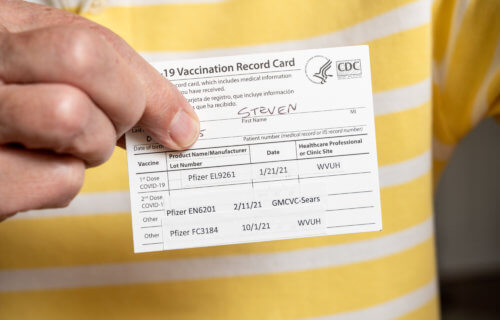PASADENA, Calif. — COVID-19 vaccine booster shots work, and now there’s new data to back it up. New research from Kaiser Permanente finds three doses of the Pfizer–BioNTech COVID vaccine provides longer, more complete protection against the SARS-CoV-2 virus.
More specifically, individuals taking a third shot of the Pfizer vaccine had better protection against both infection and hospitalization one month afterward in comparison to others only receiving two doses.
“When we looked at the effectiveness of the 2 doses of Pfizer–BioNTech vaccine versus 3 doses, we see a benefit with 3 doses that exceeds that achieved with 2 doses alone,” says Sara Y. Tartof, PhD, an epidemiologist with the Kaiser Permanente Southern California Department of Research & Evaluation and a member of the faculty of the Kaiser Permanente Bernard J. Tyson School of Medicine, in a media release.
Researchers assessed the effectiveness of two Pfizer-BioNTech COVID-19 vaccine doses against infection, hospitalization, and death up to eight months after the second injection. Additionally, they measured the effectiveness of two doses plus a third booster shot up to three months post vaccination.
Boosted patients have an 88% chance of avoiding COVID
To facilitate these analyses, study authors assessed electronic health records on 3.1 million patients at Kaiser Permanente living in Southern California between Dec. 14, 2020 and Dec. 5, 2021. During that period, a total of 197,535 patients (6.3% overall) tested positive for COVID-19. Among that group, eight percent (15,786) ended up needing hospitalization. It’s also worth noting that at the time of the study the dominant strain of COVID-19 was the Delta variant, not Omicron.
This research also reports that while two-dose vaccine effectiveness against coronavirus infections hovered around 85 percent within the first month after vaccination, that protection dropped to 49 percent by the eight-month mark. As for risk of hospitalization, two doses continued to provide strong protection (90%) throughout the eight-month time period — except among individuals over the age of 75 (77%) or those with a compromised immune system (74%).
Meanwhile, within three months of getting the Pfizer booster shot, “boosted” individuals consistently showed 88 percent protection against infection and 97 percent protection against hospitalization.
“What we see from this research is that the public health impact of a third dose to prevent severe disease is substantial,” Dr. Tartof concludes. “Importantly, all studies that have evaluated the vaccine effectiveness of a third dose — including ours — have shown a meaningful improvement in vaccine effectiveness against a broad range of SARS-CoV-2 outcomes.”
The study is published in The Lancet Regional Health – Americas.
